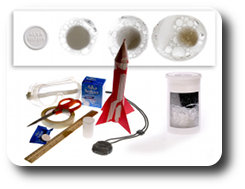Saturday 31 October, 5.15pm until 6.30pm, Courtyard Gallery
 Peter Mandelson, Secretary of State for Business, Innovation and Skills, used the Science Museum’s 100th birthday celebrations in June to argue that ‘the future competitiveness of this country depends on the excellence of its science’. Gordon Brown too wants to shift the UK economy away from financial services and towards science and technology; he has vowed not to let science become a ‘victim of the recession’. Specifically he identified school science as key and pledged to ensure 90% of state schools teach physics, chemistry and biology as separate subjects within five years so Britain can produce ‘the great scientists of tomorrow’.
Peter Mandelson, Secretary of State for Business, Innovation and Skills, used the Science Museum’s 100th birthday celebrations in June to argue that ‘the future competitiveness of this country depends on the excellence of its science’. Gordon Brown too wants to shift the UK economy away from financial services and towards science and technology; he has vowed not to let science become a ‘victim of the recession’. Specifically he identified school science as key and pledged to ensure 90% of state schools teach physics, chemistry and biology as separate subjects within five years so Britain can produce ‘the great scientists of tomorrow’.
Yet it is barely three years since the introduction of the 21st century science GCSE curriculum throughout state secondary schools, which many argue bowdlerised science subjects. Intended to make the subject more ‘relevant’ to teenagers, the GCSE includes class discussions on climate change and cloning. But what about hard science? The new qualification gives priority to the analysis of media representations of science rather than the school laboratory experiment. Exam watchdog Ofqual has suggested reforms have dumbed down science. A recent study by Score, (the Science Community Representing Education), found some exam questions required no scientific knowledge whatsoever: chairman Sir Alan Wilson said the amount of maths in involved was ‘woefully inadequate’, and some ‘correct’ answers ‘did not reflect correct science’.
Is politicians’ rhetorical commitment to school science dependent on the idea that science will rescue UK plc from recession? Is the only defence of academic science its economic utility rather than the value of studying science for its own sake? Have we lost our belief in the importance of science as a universal approach to the study of nature?
Listen to the session audio…
Other formats are available here
 | David Perks founder and principal, East London Science School; director, the Physics Factory |
 | Professor Peter Main director, education and science, Institute of Physics |
 | Alexandra Ballard head of science, Castle School, Thornbury, South Gloucestershire |
 | Dr Simon Foster science teacher, Wentworth College; runner-up, NESTA FameLab 2009 |
 | Charlie Carter head of chemistry, Emanuel School, South West London |
| Chair: | |

|
Craig Fairnington
associate fellow, Academy of Ideas; university finance and accommodation officer |
The recent review of the National Curriculum for 11-14 year olds means there is now no formal requirement to test scientific knowledge and understanding whatsoever prior to GCSEs. The entire Key Stage 3 science assessment regime asks teachers to assess pupils so called skills rather than knowledge and understanding.
David Perks, The Times Eureka Zone, 29 October 2009 Teach science for science's sake
Teach science for science's sake
Replacing physics, chemistry and biology with lessons in 'scientific literacy' will make children more wary of science in general.
David Perks, spiked, 15 August 2006